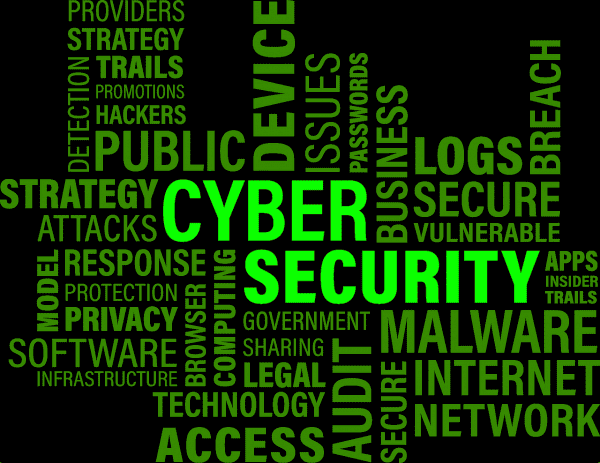Small businesses today continuously invest in a wide variety of strategies that ensure smooth internal operations every day, from customer interactions, employee collaboration, to accounting and finance management for better cash flow. In the face of modern trends and technology resources, small businesses also need to invest heavily in advanced security measures to protect the sensitive data their clients share with them, but also to protect their teams and knowledge bases.
Prevention is key in establishing and preserving your small business reputation, no matter the industry you come from. However, it can often seem impossible to choose and filter the relevant from the sea of available security strategies sold online. Hence, businesses need to weigh their pros and cons before they waste any funds on ineffective or unnecessary precautions. To help you make the selection process more straightforward and simpler, here are a few preventative measures you should add to your business strategy to prevent cyber attacks of all kinds.
Regular system updates on all devices
Your IT crew should never have a dull moment when it comes to your on-site maintenance. Although using the latest and most reliable devices means that they come with built-in security prerequisites, you should make sure that your employees have every bit of software regularly updated by your IT experts on staff.
Software updates are needed because they come with security patches, resolving different bugs, potential leaks, and ensure that your employees use the latest, most compatible software version. With that in mind, all of your digital tools should be updated on a regular basis for the sake of your entire company’s security.

Employee training and proper onboarding
No matter how hard you try to keep your tech equipment safe, your software up to date, and your IT crew vigilant, there’s always the risk of human error that too many small businesses neglect to take into account while assessing their own security risks. More often than not, your employees are the source of risk, the unintentional “leaks” of data, or the entrance for some form of security threat into your systems and databases.
Preventing your employees from becoming a risk to your business should be your top priority. That requires detailed and well-planned training programs for advanced security measures, from how to handle sensitive information, how to check if proper email encryption is conducted, all the way to how they choose and store their passwords for the many devices they own.
Moreover, plan for role-specific training programs that will increase your security and provide your employees with the latest skills to prevent data breaches and keep your data secure. For companies using AWS as their preferred cloud solution, providing comprehensive AWS training courses to employees are the best possible way to make sure they know how to utilize the cloud’s full potential without risking your sensitive business data. The more skilled your teams are, the better your chances of ensuring long-term, business-wide security and best practices across all departments.
Online behavior best practices
Hackers are getting more skilled every day, and they also have access to high-quality devices that can penetrate some of the most advanced security systems in the world. Should they come across your own small business and find a perfect opportunity to access your sensitive business data, they’ll definitely not miss out on such a chance to leak any information that can bring them profit. That said, using the public and visible IP address on your devices means that you’re exposing your business devices to prying eyes, and reducing the anonymity of your online behavior.

To increase your browsing security levels, you should hide your IP address across all of your devices and enable your employees to add another layer of safety to prevent a data breach. Without proper protection, you risk revealing the actual location and address of your employees, simplifying remote access to their devices, and ultimately a security breach that could lead to massive data leaks. IP protection should be a key prerequisite for safe browsing and a smart solution to keep your data private.
Regulate different levels of access control
Small businesses can contain dozens of employees, and not all of them need access to your clients’ most sensitive information, such as their credit card numbers, emails, or addresses, and phone numbers. That said, you need to make sure that there are different authorization levels established in your organization, and that only a select few can access the most sensitive data at any time.
Multi-level access control, with the help of biometrics, personalized cards, and passwords, can give you the kind of restricted access your business will benefit from the most. When you have visitors on-site, this will be one straightforward way to keep them from ever having access to the most vital data on your customers and clients.
Smart password management
Yes, utilizing advanced anti-malware and anti-virus protection software is a must for modern-day small businesses. Add to that your employee training and smarter onboarding practices, and you’ll significantly reduce your chances of a cyber-attack. However, even the most benevolent of employees can wreak havoc on your security by using the same password for all of their software accounts, email, and social media.
This is considered a common practice among the less-savvy users, but you should definitely introduce password management best practices for your organization. Your employees should use tools that generate virtually undetectable passwords that they can change regularly and store safely within their manager tools.
Cybersecurity is far from a novel issue, but one that gains in relevance as time goes by, especially for the growing number of small businesses joining the playing field. To make sure you’re on the safe side of digital operations and that all of your employees know how to manage their own private information, implement these preventative measures and keep your risk assessment frequent and unbiased to ensure the security of your business. That is the only way to protect your reputation today and to retain your position in the market as one of a business that customers will always trust.
Picture Credit: Pixabay






